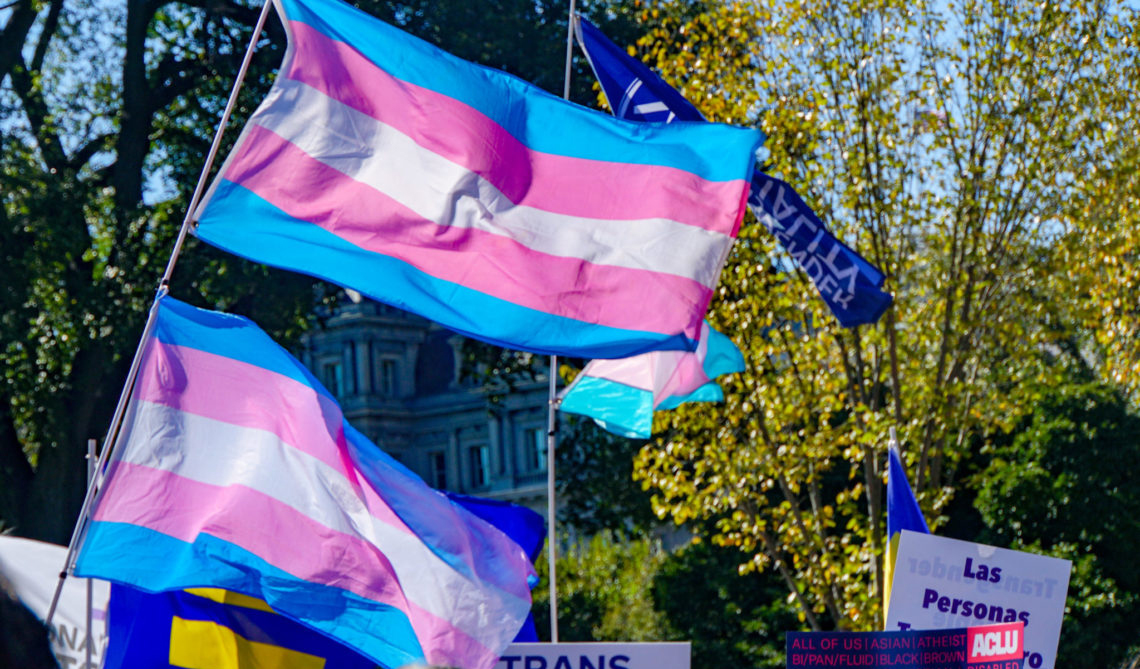

By Jeremy Dewar
Transgender, or trans people, are those who feel their gender identity does not correlate with the gender (based on biological sex) which they were assigned at birth and socialised into. This phenomenon has existed in a wide range of manifestations according to the particular form and development of a given society throuhout history, but has become commonly understood as ‘transgender’ over the course of the 20th and 21st centuries.
It is not a psychological ‘disorder’ and any attempt to present or treat it as such is oppressive. Kemi Badenoch’s remark that trans people can use disabled toilets, or Baroness Cass’s call for all young trans people to be tested for ADHD and Autism (ASD) are derogatory, oppressive and should be condemned as such.
Biology
The statement that ‘only biological women are women’ appears to be commonsense and incontrovertible. However, it is wrong because humans are not abstract biological specimens but social animals.
Our sex is not just a biological given; it is expressed in and through society and its expectations of the genders, and then further mediated through our reflection on this reality. A person’s gender and sexual identity is the result of a complex of biological functions, sexual orientation, social requirements and expectations, as well as one’s own subconscious and unconscious mind. Therefore it is absolutely possible for someone’s gender consciousness to contradict their biological sex.
To insist that biology determines everything is in fact an idealist abstraction that seeks to categorise human beings outside of their lived environment. This biological reductionism, whatever the intentions of the feminists and socialists who resort to it, is doubly reactionary. It both excludes trans women who, on the whole, need to be included as women in women-only spaces for example, and it seems to suggest that women’s oppression is caused by biology and is therefore eternal, excluding men from being part of the solution, i.e. by changing their behaviour towards women and joining the struggle for their liberation.
However, unlike some feminist or trans theorists, Marxists, as dialectical materialists, do not deny the general division of most humans into two sexes, male and female, thus far a condition for the reproduction of our species and many others, despite the existence of intersex people who also deserve respect, dignity and full rights to bodily autonomy.
Family
As early human societies evolved, they tended to develop a sexual division of labour, determined largely by the needs of childbearing and rearing. From this division, various forms of the family emerged. But once a regular surplus was produced, restrictions were imposed on women inside the family unit, in particular the requirement for women to be monogamous so the eldest male (patriarch) could ensure his wealth was passed onto his offspring.
The family type has changed several times over the thousands of years of class society, and its purpose for the subordinate classes developed into a means of reproducing class society from one generation to the next. But the subjugation of women and the expectation of their heterosexual monogamy have remained constant. The attitude to men or women who do not pair with the ‘opposite’ sex—that the ideology of a biologically determined binary is ‘natural’ and all else is ‘unnatural’—has been used to persecute homosexuals and still is in most societies.
Anything that transgresses these norms is viewed by the ruling class as an aberration dangerous to the patriarchal rules. It was the struggle, first by women, then by lesbians, bisexuals, and gay men, to escape from these restrictions and to assert their own identity and needs, that has in recent years also inspired the movement of trans people for their liberation.
Against the claims of For Women Scotland and their supporters, the struggle for trans rights is deeply connected to and shares its roots with the fight for women’s liberation. It is the narrow outlook of these bourgeois and petty bourgeois forces which promotes the demands for quotas and safe spaces (both necessary and progressive in their own terms, but not the whole picture) over and against the demand for the equal rights of all women. In essence they are not just transphobes, sharing in the right-wing and religious bigotry now on the offensive in the USA and the UK, but they are poor women’s liberationists or feminists too.
Way forward
The truth is that the rights of different groups of the oppressed can and often do clash. Sometimes the clash is superficial and based on prejudice. This was certainly the case in the 1960s and 70s when the feminist movement in the US tried to exclude lesbians, whom some heterosexual women thought were either predatory or at least a significant minority of them were. The parallel with today’s prejudices against trans women is startling—only this time lesbian women find themselves being deployed as ‘feminist cover’ by the exclusionary camp.
But working class communities and in particular the trade unions have for two decades been dealing fairly successfully with these clashes, through dialogue, occasional compromise and an element of workers’ control. These are our communal facilities; this is our workplace; we should decide how we share them and use them collectively, and how we overcome any abusive behaviour that arises.
Now the Supreme Court ruling, with the EHRC following hot on its heels, has thrown all these practical solutions up in the air. It is essential that rank and file women workers, LGBT+ and straight, come together to demand control over the spaces they use, and reject the diktats of the courtroom and ‘equalities’ ideologues.